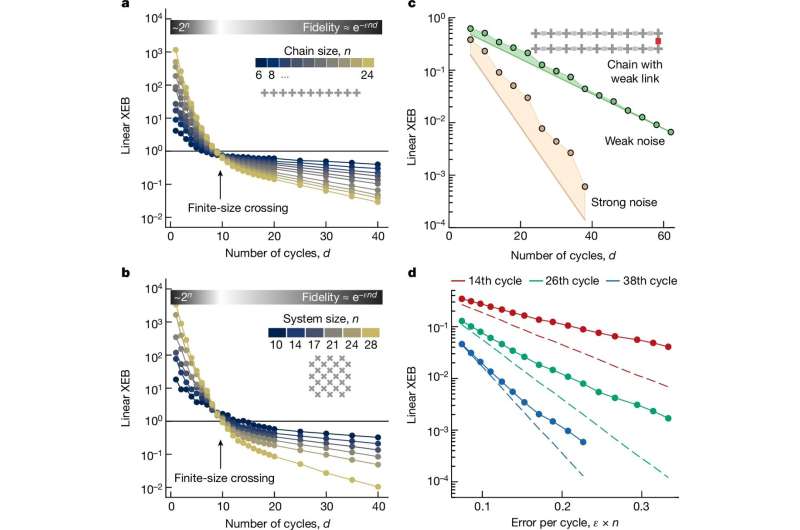
October 12, 2024 by Bob Yirka , Phys.org
Collected at: https://phys.org/news/2024-10-google-sycamore-quantum-chip-classical.html
A team of engineers, physicists and quantum specialists at Google Research has found that reducing noise to a certain level allows the company’s sycamore quantum chip to beat classical computers running random circuit sampling (RCS).
In their study, published in the journal Nature, the group tweaked the conditions under which their processor was running to reduce the amount of noise interference to a level that allowed it to surpass classical computers running RCS.
Computer scientists have been trying to build a truly useful quantum computer for several decades, but they have yet to build one that delivers on its initial promise—to run algorithms that would take classical supercomputers hundreds, thousands or even millions of years to complete. Still, continual progress has been made as new technology is introduced.
Researchers have developed algorithms that can run on either a traditional supercomputer or a quantum computer as a way to test their abilities against one another. One such algorithm is the RCS, which essentially does nothing but generate a series of random numbers.
One of the biggest hurdles that researchers have faced is errors produced by environmental noise. That has led to much research into error correction methods, or optimally, methods to prevent them from happening in the first place. Such research has led to findings that suggest background noise in the environment can cause errors—such noise is natural or environmental in nature; it can come from temperature changes, magnetic fields or even space radiation.
In this new study, the researchers at Google worked to reduce background noise, part of which involved putting their chip in a near absolute zero chamber as the chip was running. They found that even small reductions in noise, such as from a 99.4% error-free rate to 99.7%, resulted in dramatic changes in capabilities.
They were also able to reduce the error rate of their chip enough to allow it to achieve a “quantum advantage” when running the RCS—suggesting that scientists are moving ever closer to the dream of a truly useful quantum computer.
More information: A. Morvan et al, Phase transitions in random circuit sampling, Nature (2024). DOI: 10.1038/s41586-024-07998-6
Journal information: Nature

Leave a Reply